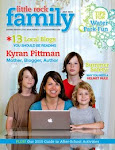 |
| My Dad with my then newborn son, Max |
My Dad had a heart attack and triple bypass surgery last week. He is 80 years old. No time is a good time to have a heart attack…but
at 80, it’s even tougher.
So, I dropped everything and drove 4 hours to my home in
Oklahoma to be with my family at the hospital.
(Update: Doctors are thrilled at his recovery…but because of his age, it
will be a long process).
Needless to say, I dropped all my book related issues: I was in the middle of reading a book, had a
review to post on our May book club book, and a myriad of other book related balls
up in the air when I had to grab the batmobile to speed out of town.
Here are my expedited thoughts on my unfinished book week:
The Lifeboat by Charlotte Rogan
My enjoyment rating:
Did Not Finish
Genre: General
fiction
Source: Library copy
Objectionable material:
None (to the point where I stopped reading at least).
This was the first collateral damage of my sudden
departure.
Grace Winter was on day 5 or 6 in a lifeboat, along with
40 or so other survivors, after the ship in which she was sailing, sank.
The first 20 pages or so were rather enthralling. I was eager to find out their fate. But the longer they were on the boat, the
less I cared. So when I forgot to put it
in my bag, and then it was due to be returned to the library, I had very little
remorse that I hadn’t finished. I haven’t
thought another thing about Grace and her shipmates since.
If someone has read this and thinks it’s worthy to check back
out again, let me know.
The Homecoming of Samuel Lake by Jenny Wingfield
My enjoyment rating:
3.5 out of 5 stars
Genre: Southern
fiction
Source: Personal copy
Objectionable material:
the odd cuss word; veiled rape scene.
May Book Club Choice
Swan Lake (yes…that is her name) and her family have
descended on her grandparents’ farm for the summer. After a suicide, her father losing his job
and a threatening, abusive neighbor shake up their idyllic summer plans, Swan
and her family must learn to depend on one another and God through faith.
This was a typical southern novel – juvenile characters
facing the battle of good vs. evil with added family angst. The writing was lovely, but the storyline
meandered a bit. Lots of characters, but
not all necessary or well developed.
However, the book club ladies liked it, and our discussion made me like it
better than I first thought (which is often the case). I would be willing to give this author
another chance, should she choose to write another book.
June book club choice:
Women, Food, and God by Geneen Roth
Don’t Sing at the Table by Adriana Trigiani
My enjoyment rating:
3.5 out of 5 stars
Genre: Family memoir/self help
Source: Nook
Objectionable Material: None
Popular author, Adriana Trigiani, has written a poetic
memoir about her Italian immigrant grandmothers, Lucia (Lucy) and Viola: their families,
their growing up years, their professions, their talents, their heartbreaks,
and their joys. Loved reading about
these two very unique and special individuals.
But the book turned “self help” through some of the chapters, and that
wasn’t nearly as successful (and almost awkward) as reading about Lucy’s and
Viola’s lives.
Made me reminisce about my own very special grandmothers.
However, I’m so glad I read this first before starting The
Shoemaker’s Wife – I think it really sets the stage for Ms. Trigiani’s
newest novel.













































